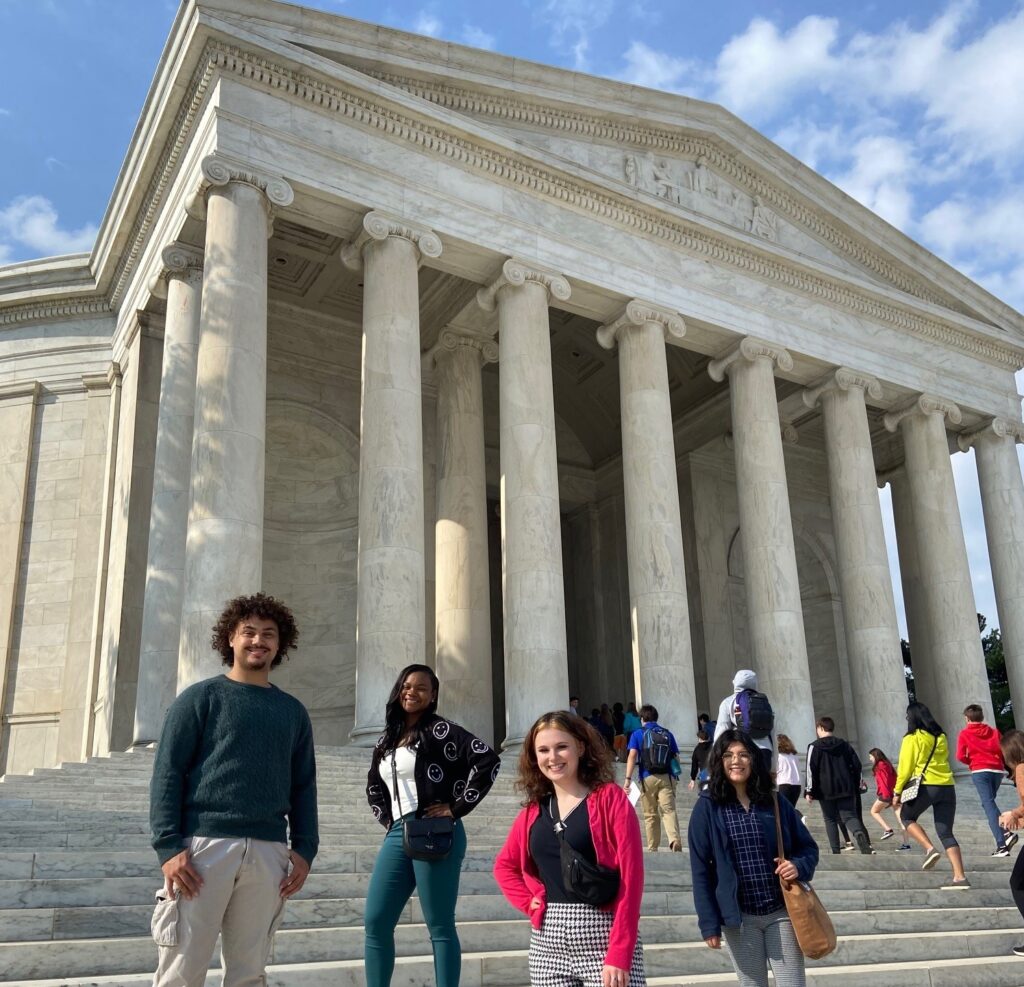Commitment to Students
All Scholarship Foundation programs, including those it operates in partnership with other organizations, are based upon the following principles:
Identity and Personal Information
The Foundation will:
- Treat students fairly and consistently, and not discriminate on the basis of race, gender, age, disability, religion, sexual orientation, ethnicity, or membership in any protected class.
- Hold personal and identifying information as confidential, and not attribute or share it with third parties without students’ permission.
- Safeguard identifying and financial information.
- Invite but not require students to participate in publicity or media appearances, without the student’s decision whether to participate having an impact on award decisions.
Student Stories
The Foundation will:
- State transparently the intention and goal(s) when borrowing a student’s story, returning to the student to ask permission each time the story is shared anew.
- Make clear to students that they are under no obligation to share personal stories, will experience no repercussions for declining, and have final editing authority.
- Provide training, skill-building, and support for student storytellers, always compensating to students for their time.
- Ensure informed consent, which includes discussing risk and safety and always placing student well-being first.
- Not dictate, prescribe, or script anyone’s story; commit to storytelling from a point of strength and not victimization.
Advice/Guidance
The Foundation will:
- Seek open, honest communication with students.
- Encourage students to practice self-determination and to learn self-advocacy.
- Treat students as unique individuals.
- Offer advice and guidance to help students succeed but not obligate students to follow such advice.
- Discourage students from unnecessary borrowing.
- Respect student’s choice of school of attendance; however, the Foundation will not fund students attending schools outside eligibility guidelines or students whose financial aid packages at their school of choice leave them underfunded or in excessive debt.
- Provide students with clear information about repayment and debt management options that will serve them in college and beyond.
Funding
The Foundation will:
- Select students on the basis of financial need, academic potential, and character.
- Disburse scholarship grants and interest-free loans directly to students and/or safeguard against displacement.
- Provide annual opportunity to apply for renewal in all student funding programs until degree completion or up to ten semesters (depending on program), at minimum.
- Review each complete application carefully, thoughtfully, and in consideration of the context and circumstance of the applicant.
- Exercise due diligence in financial aid packaging, so that awards are not made if excessive debt would result and/or the student will be insufficiently funded.
- Select students based on qualifications, without influence from other considerations such as donor input or personal relationships.
Relationship
The Foundation will:
- Keep information learned from the student in advising conversations separate from award decisions, provided that information does not affect the student’s eligibility for any Foundation program(s) in which the student is participating.
- Discuss a student’s information with student only, unless the student gives permission for a third party to be involved.
- Provide opportunities for a student to regain good standing when the student loses funding due to insufficient academic progress or failure to meet deadlines.
- Seek to establish and maintain relationships of respect, trust, clear communication, and mutual accountability with students.
- Maintain primary relationship with the student, though that relationship may also be initiated or strengthened in concert with nonprofit community partners.




